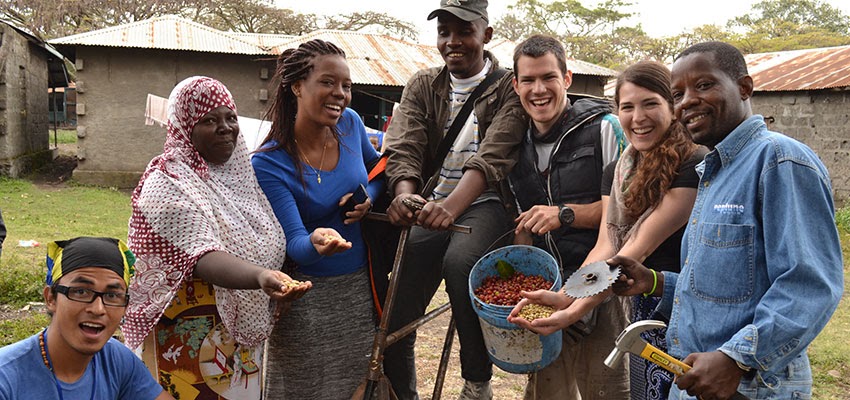Innovation doesn’t just generate profits—it can also make the world a better place by addressing pressing humanitarian challenges. Drive innovation and make an impact as a nonprofit or corporate leader by mastering Participatory Design, an evidence-based, problem-solving approach pioneered by MIT D-Lab. In this dynamic five-day course, you’ll learn to mitigate barriers to participation and enable a more inclusive innovation ecosystem.
Course Overview
This course may be taken individually or as part of the Professional Certificate Program in Innovation & Technology.
This course counts as 3 days towards certificate program completion.

Participatory Design is a process that engages the individuals who are affected by the challenges and will benefit from the resulting innovation
Innovation doesn’t just generate profits—it can also make the world a better place by addressing some of our most pressing humanitarian challenges. This course delves into an evidence-based, innovation-driven, problem-solving approach called Participatory Design.
Pioneered by MIT D-Lab, Participatory Design is a process that engages the individuals who are affected by the challenges and will benefit from the resulting innovation. In this five-day live virtual course, nonprofit and corporate leaders will acquire essential frameworks and fundamental tools and learn how to apply them in their own mission.
This course was designed as a complementary course to Applied Inclusive Business: Scaling Technology in Low-Income Markets.
Participant Takeaways
- Define inclusive innovation and its components
- Distinguish between the three types of Participatory Design and the contexts in which each may be most useful
- Recognize and mitigate power dynamics and barriers to participation in innovation processes - especially in a virtual environment
- Apply frameworks and techniques aimed at facilitating the Participatory Design process among diverse stakeholders
- Identify and understand the actors and factors that enable an inclusive innovation ecosystem
- Connect with like-minded organizations who use Participatory Design in their work
- Discover how to partner with MIT on inclusive innovation opportunities
Key Frameworks
Participants will leave the course with a collection of frameworks that enable inclusive innovation processes, including:
- Inclusive Innovation Framework
- Participatory Design Process Framework
- Participation Index
- Lean Research Framework
- Inclusive Problem Framing Methods
- Local Innovation Ecosystem Framework
Who Should Attend
This course is particularly well suited to professionals working in international development, community organizing, or diplomacy, poverty- and hunger-related issues, corporate social responsibility, grantmaking and philanthropy, global health, government service, social entrepreneurship, technology development, STEM education, and higher education.
Attendees often include:
- Directors and Managers of Partnerships, Strategy, Programs, New Business Development, Training, Research, Outreach and Communications, Monitoring and Evaluation, Product Development, Finance and Operations
- Engineers
- Researchers
Computer Requirements
Participants will need a computer with a webcam. During the course, you will work with a virtual collaboration platform called Miro. There will be an optional 1-hour tutorial on June 1 at 10 am EST to prepare participants for the course.
Live Virtual Program Outline
This course meets live virtually through Zoom platform 9:00 am - 12:30 pm EST Monday through Friday, with a few optional virtual networking events throughout the week.
MIT D-Lab faculty, instructors, and program staff bring global perspectives and experience to this course, which draws on real-life case studies derived from Participatory Design initiatives around the world. In addition to case studies, sessions will have a mix of research, dynamic scenarios and exercises, group discussions, and networking opportunities. Because of the emphasis on experiential learning, all sessions have roughly a 1:2 ratio of lectures to virtual group-based activities.
During the course, we will work with a virtual collaboration platform, Mural, and will offer a 1-hour Mural tutorial on June 1 at 10 am EST to prepare participants for the course.
Instructors and guest lecturers
In addition to MIT D-Lab Founding Director Amy Smith and Faculty Academic Director Maria Yang, the course will feature the following:
- Amanda Epting, MIT D-Lab Practical Impact Alliance Manager
- Elizabeth Hoffecker, MIT D-Lab Research Scientist, Local Innovation and Development
- Kendra Leith, MIT D-Lab Associate Director for Research
- Bhaskar Pant, MIT Professional Education Executive Director
Course curator: Sher Vogel, MIT D-Lab Global Trainings Manager


